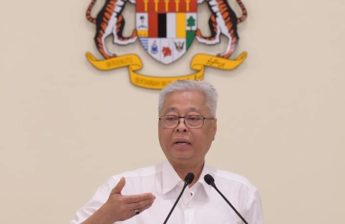KUALA LUMPUR, Dec 10 — A physicians’ group today called for the removal of middlemen in medicine that purportedly increase costs, amid concerns of expensive care with deregulated private medical practitioners’ consultation fees.
The Federation of Private Medical Practitioners Associations Malaysia (FPMPAM) said medical management of patients should be the sole responsibility of doctors, adding that the law stipulates that this should be clearly stated in all contracts with health care providers.
“In the urban areas where the middlemen have now cornered a significant proportion of the patient flow, the middlemen, and not the doctor, will be the determinant of the doctors’ fees,” FPMPAM president Dr Steven Chow said in a statement today.
“In the end, to protect the quality of patient care, the doctors will have no choice but to respond collectively to this trend,” he said, adding that this will also ensure better care at an affordable cost.
Dr Chow said the issue of unfair fees and one-sided contracts with managed care organisations (MCOs) — which manages the health care plans of workers and the insured — is an issue which has not been resolved by existing laws and regulations.
He also cited complaints by doctors about what he said were the many “quasi-regulations” that he claimed have been unilaterally imposed by MCOs and which interfere with medical management of patients.
“We are of the view that any contract with (a) doctor must respect a minimal mutually agreed professional fee and clear transparent payment procedures that are in keeping with the tenability of good medical practice,” he said.
“This will prevent undercutting and compromised care.”
Following Cabinet’s landmark decision to deregulate private medical practitioners’ consultation fees, 13 years after they were legislated in 2006 with rates set in law by the federal government, concerns have been raised about immediate higher charges and doctors undercutting their professional rates.
Under Schedule 7 of the Private Healthcare Facilities and Services Act (PHFSA) 1998, private clinic dentists’ consultation fees are capped at RM25 to RM250. Under Schedule 13, private hospital specialists’ consultation fees are legislated at a rate of RM80 to RM235.
Concerns over MCOs, meanwhile, are not new. Doctors previously complained that the solo general practitioner (GP) practice will eventually die if their fees remain stagnant — as they have been, at a 1992 rate of RM10 to RM35 — amid rising costs and inflation, and while being squeezed by MCOs at the same time.
While lauding the deregulation move, FPMPAM, which represents doctors in private practice in Malaysia, said they were surprised with the “abruptness” of the policy change, and asked whether the public will be prepared to face possible economic disruptions because of it.
Dr Steven said FPMPAM had major reservations about the role of PHFSA and its fee schedules when it was enacted in 2006, and its ability to control the cost of medical care, claiming that it is clear that a fixed fee schedule is the wrong way of doing this.
“The same applies to proposed ceiling pricing of medications,” he added. “Before 2006, medical fees remained reasonable stable despite the absence of a fee schedule.”
Pointing out that the cost of providing medical care has gone up due to increasing cost of living, cost of new technologies, treatment options, and from the cost of regulatory compliance, he claimed that setting up new clinic today would cost GPs at least five times what it would cost before 2006.
He cited yearly increases in rental, staff salaries, and administrative, utility, medication and clinic supply costs as well, which he claimed many doctors have since absorbed in their professional fees.
“The fact that the doctors’ fees are already way out of date with existing cost of running a clinic have not been addressed by the existing fees schedule. It is thus good sense to do away with the schedule,” he said.
“With deregulation, a short-term market correction in the fees is to be expected. There exists already a certain level of fees that… doctors and patients are used to and comfortable with for the past 10 years.
“Exorbitant variation is unlikely as the patients will naturally shun away from these doctors,” he said. “Patients will compare prices and a GP will not charge more than his colleague down the road.”
He added that income from the dispensing of medicines is meant for the running cost of the clinic and will vary from clinic to clinic, depending on location, rental, staff salaries, and so on.
Dr Chow said this must be left to market forces and any proposal to regulate and interfere with this will end with failure of the GP system, which he said has been able to provide patient care cheaper than that of the public sector.








